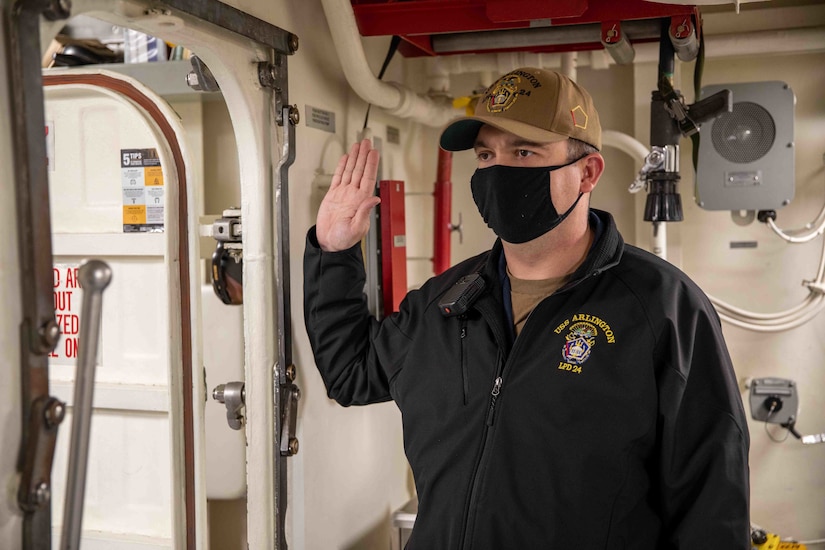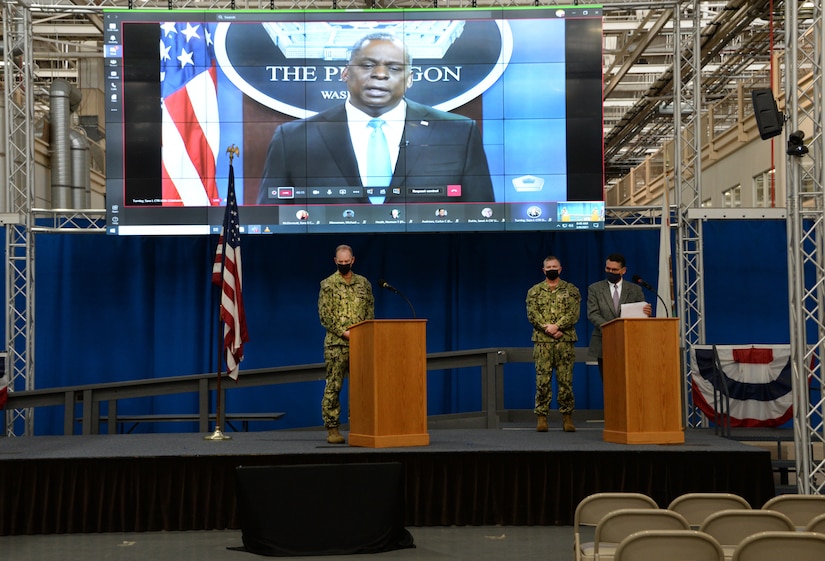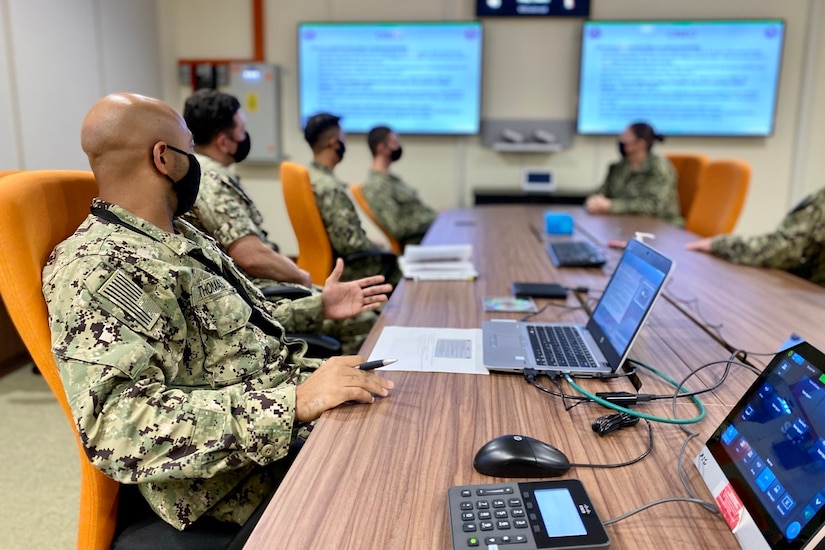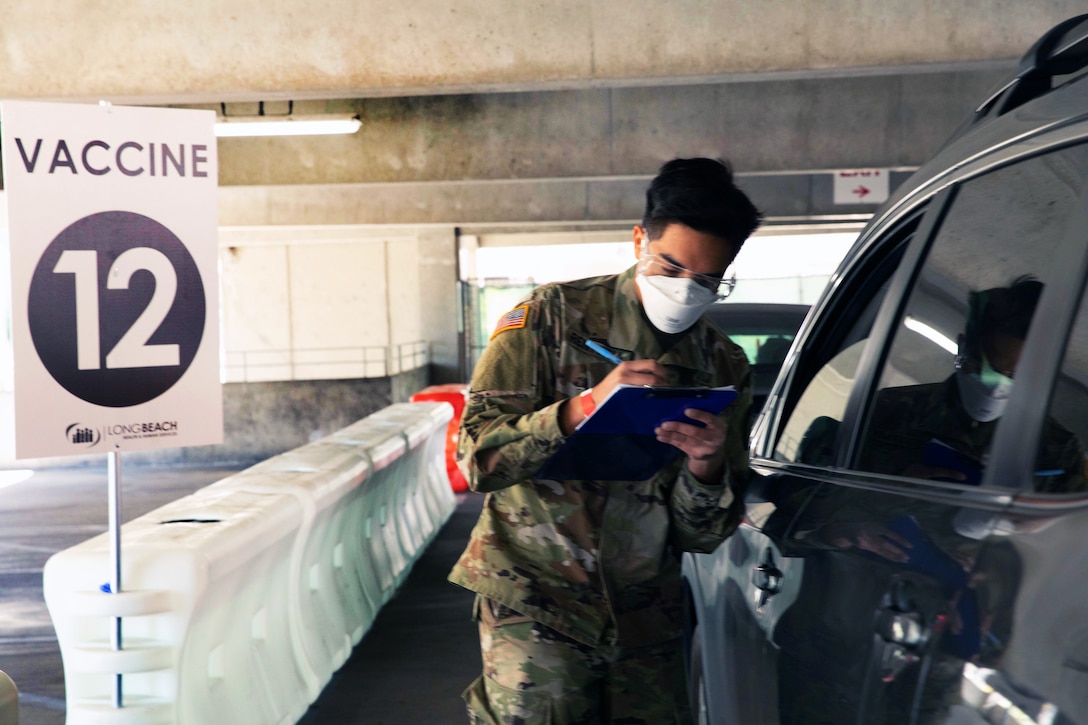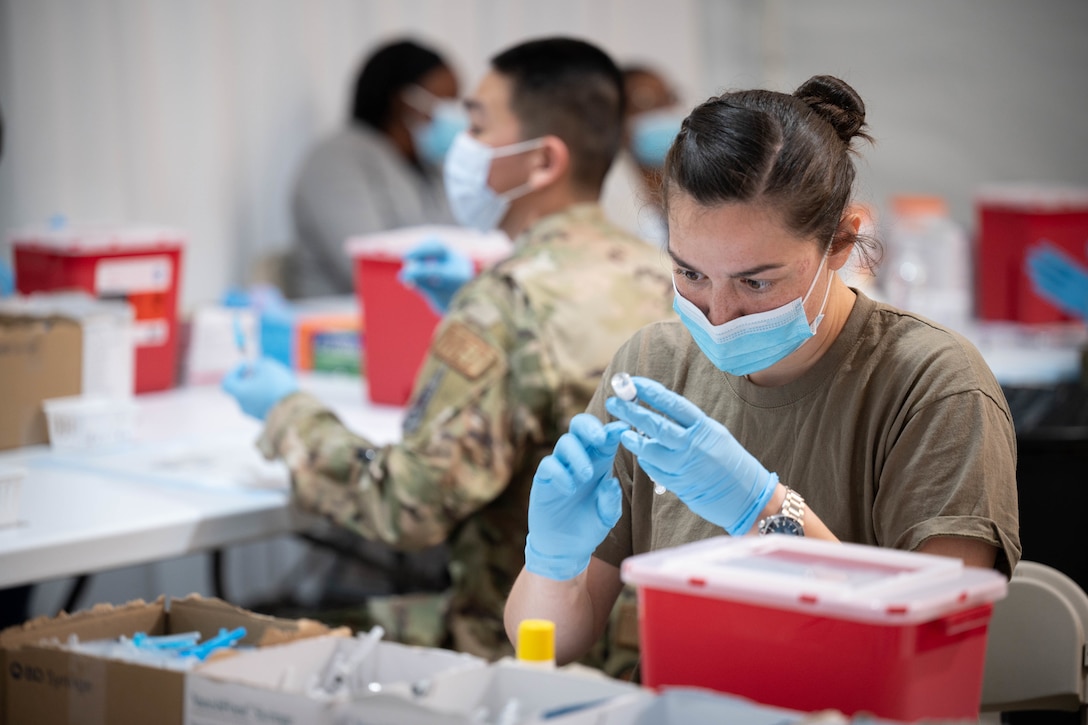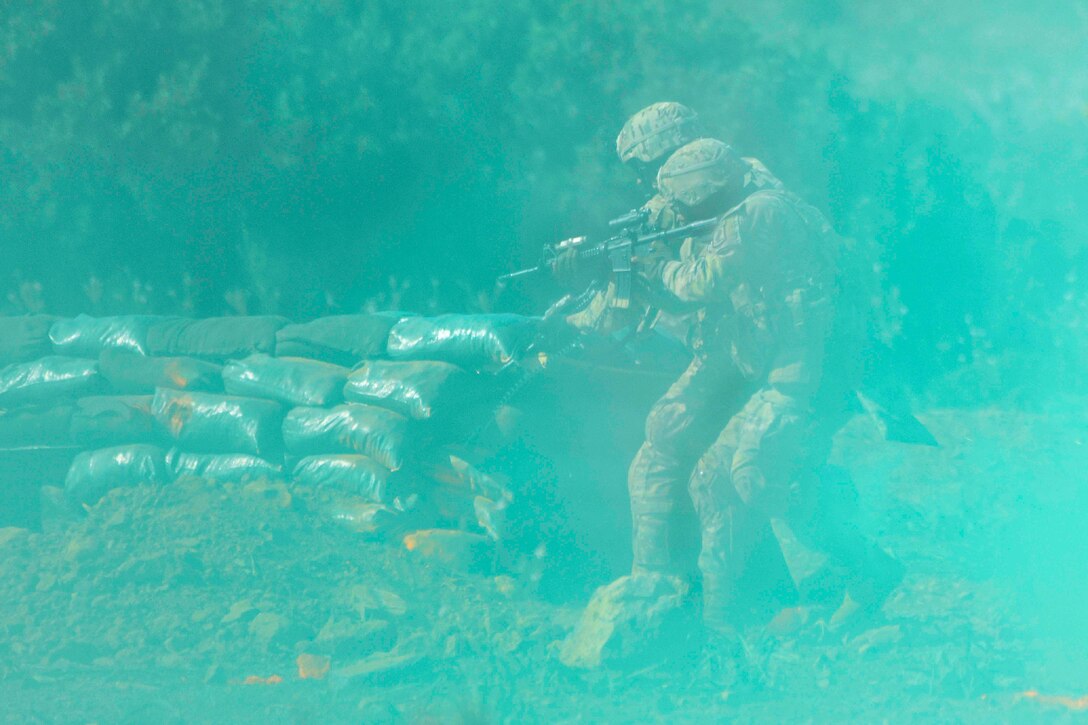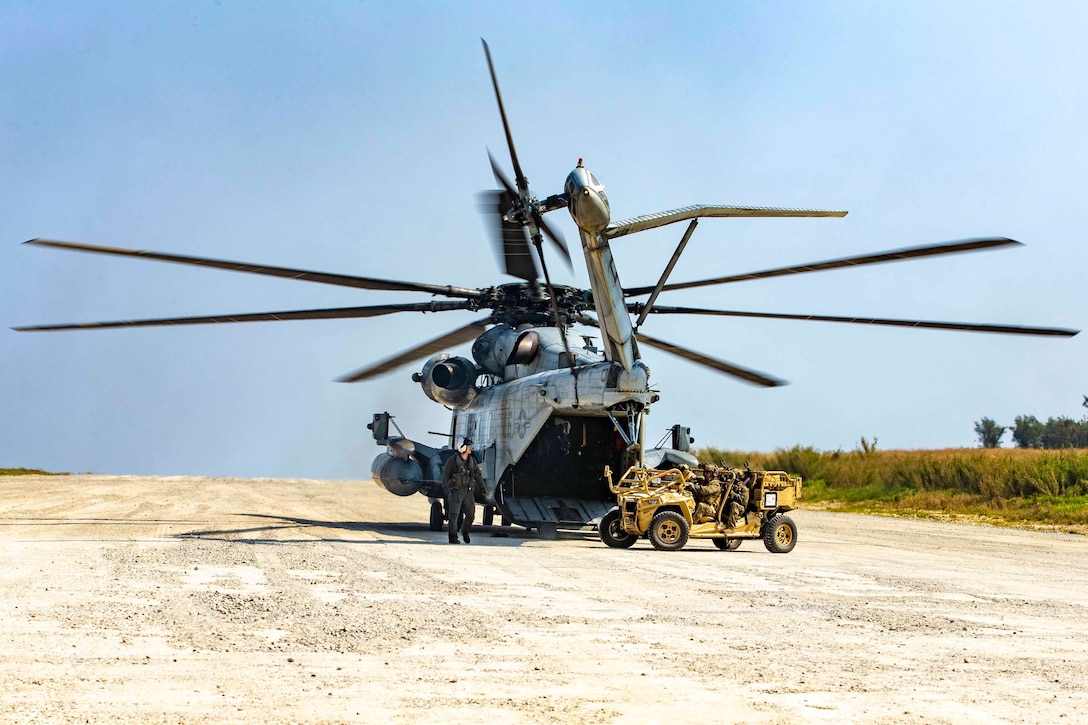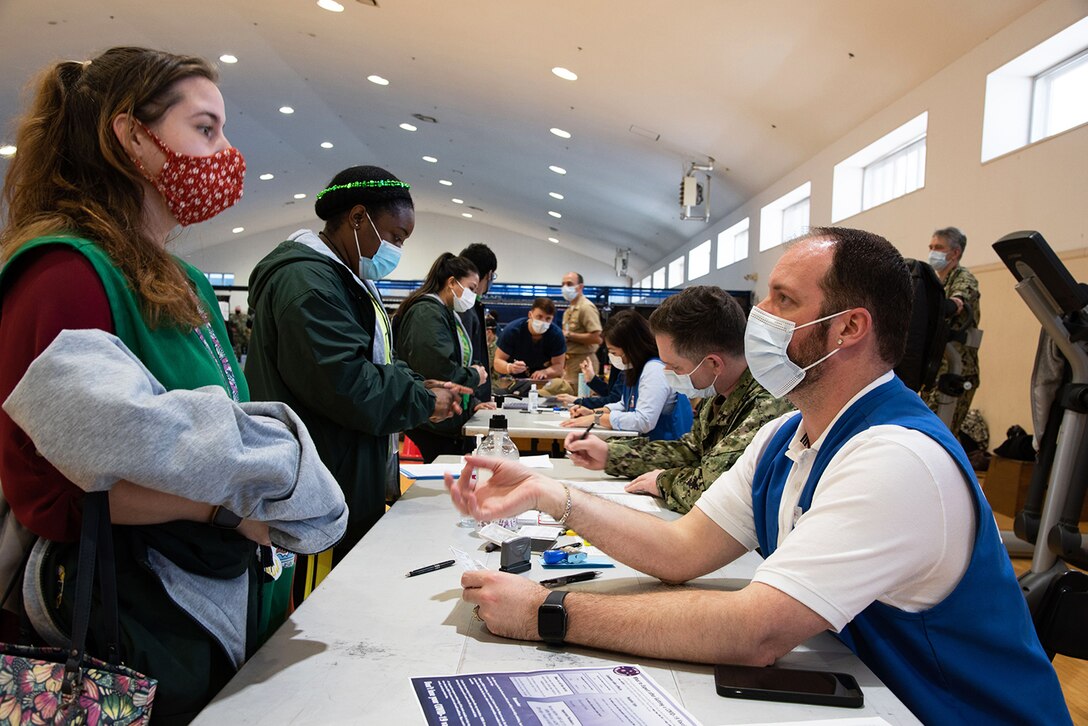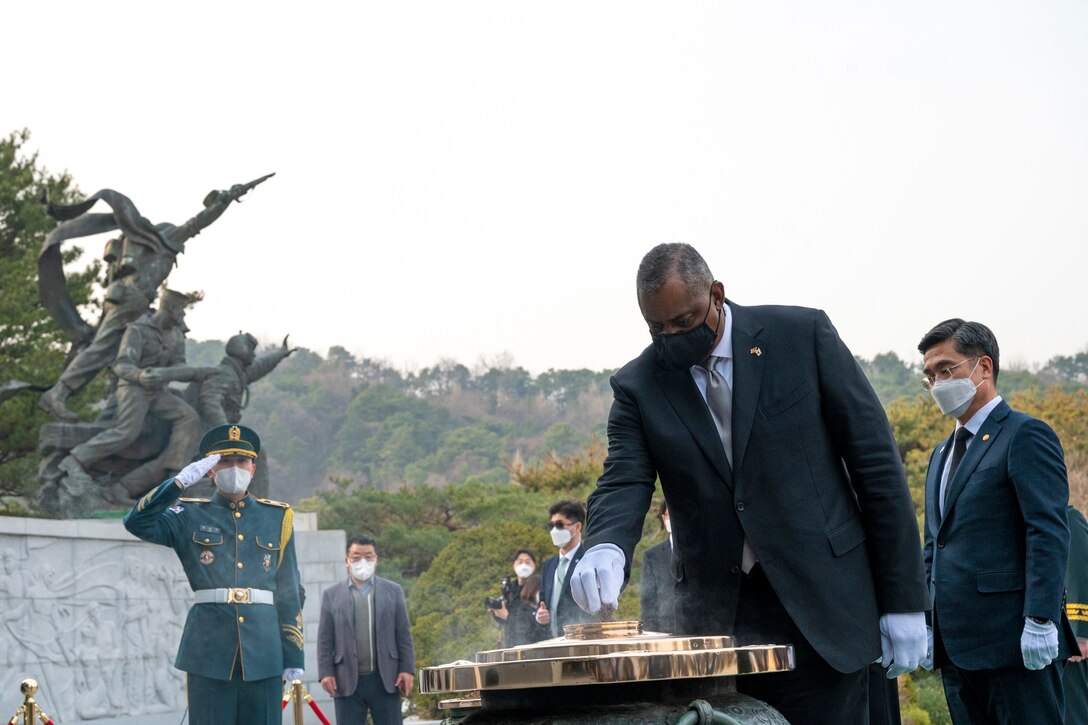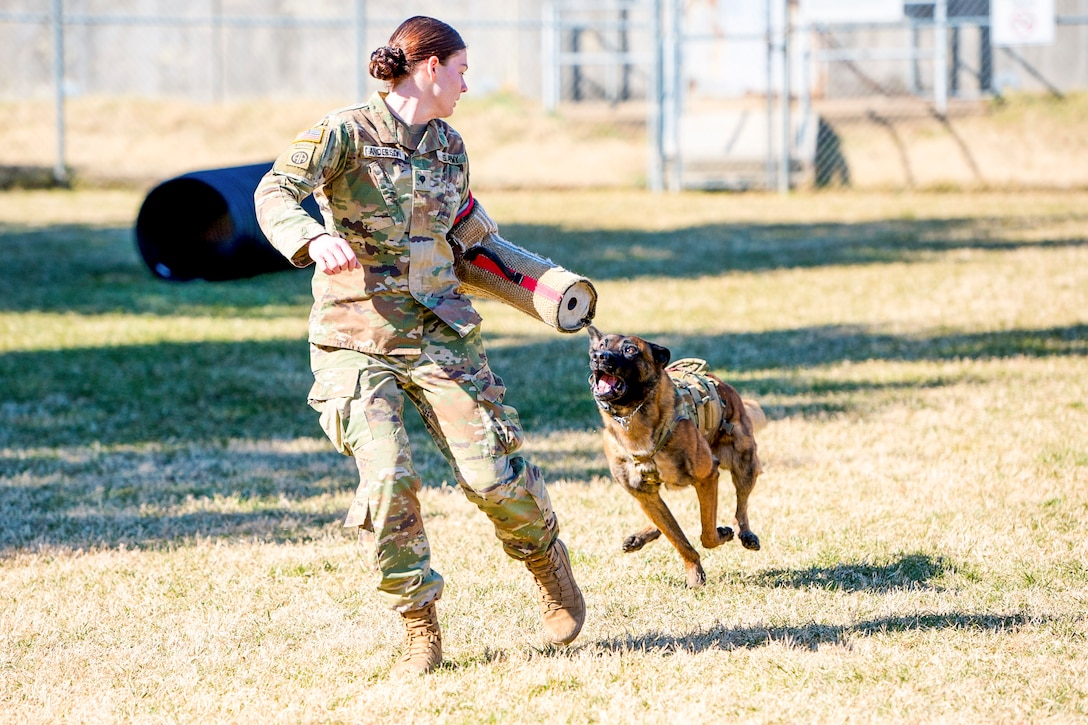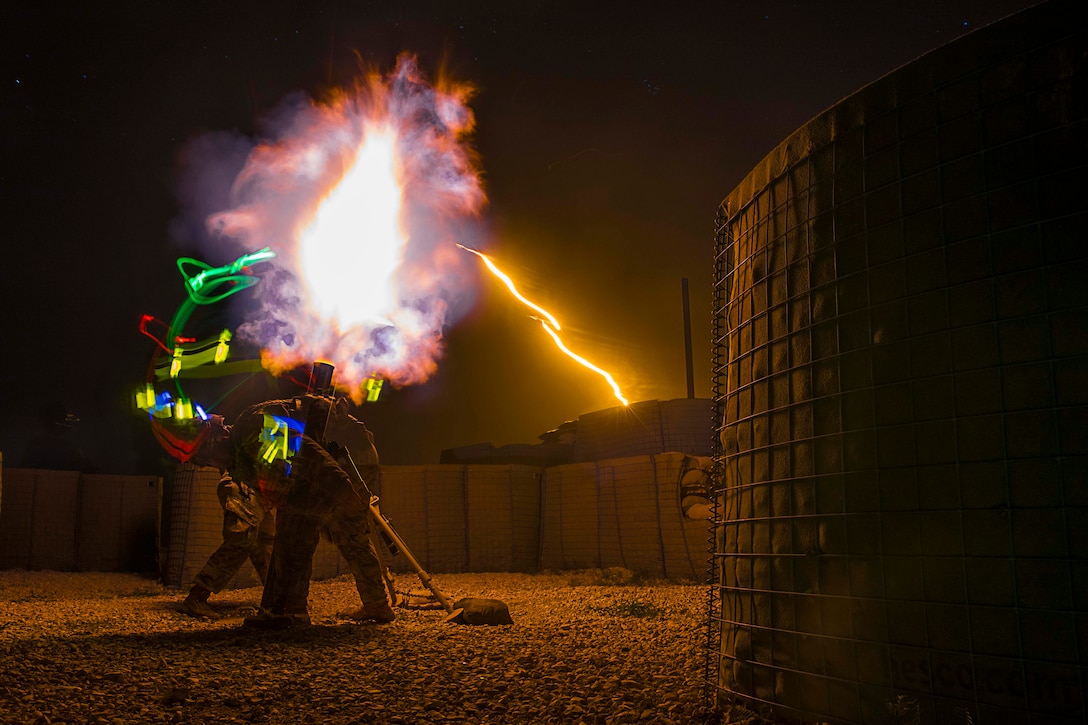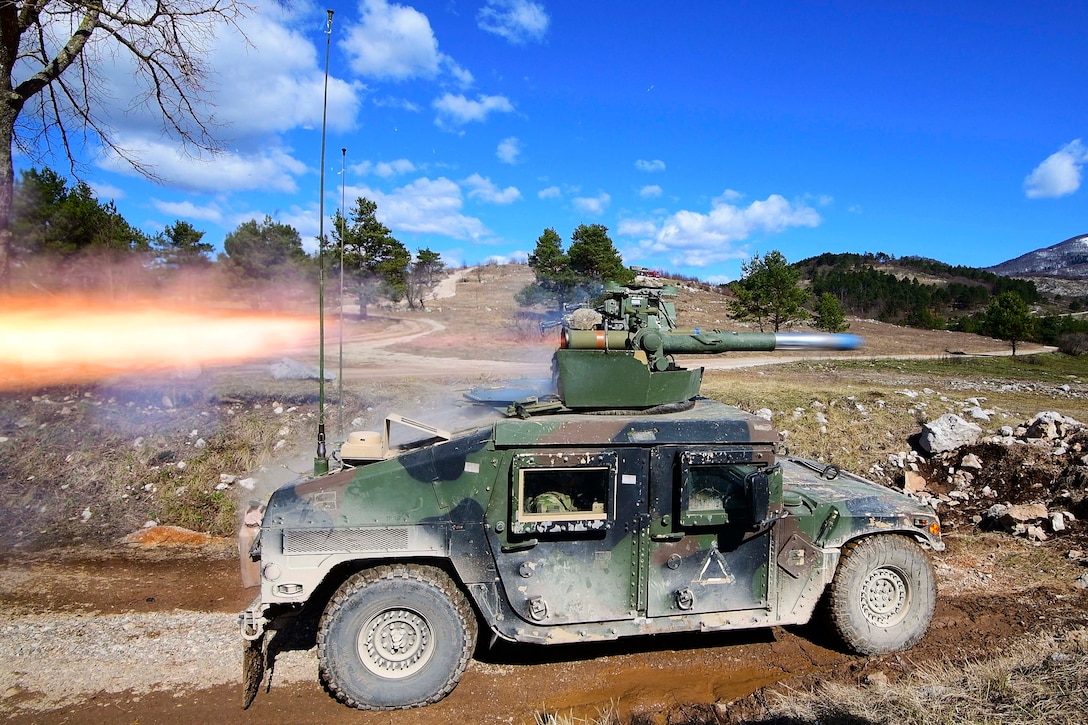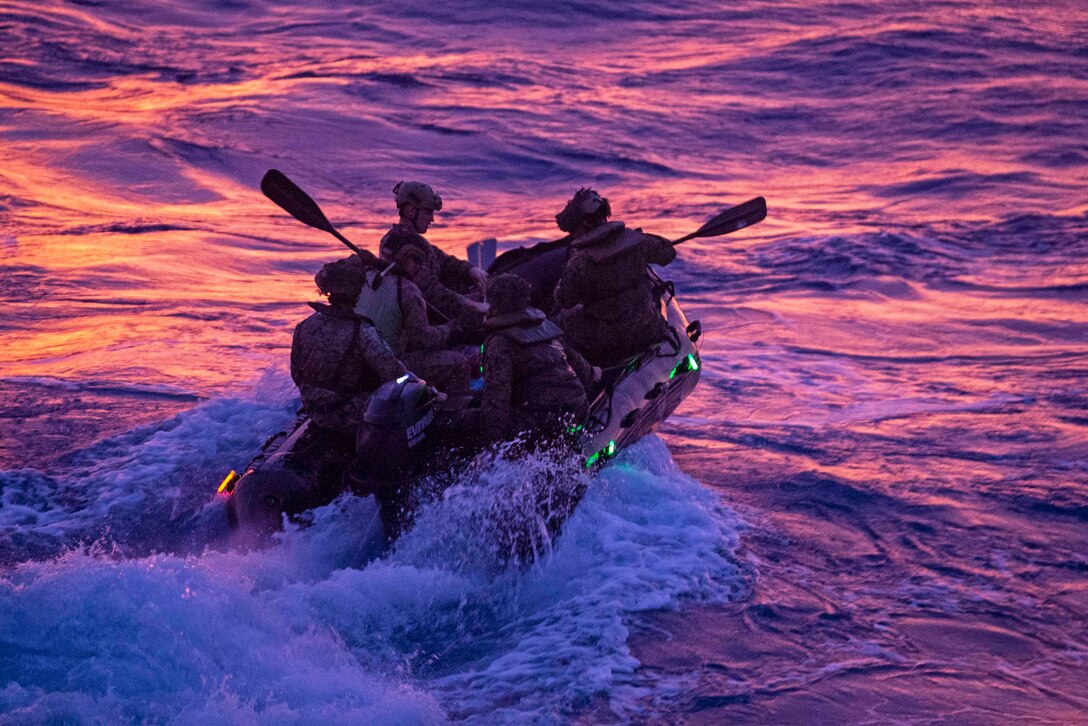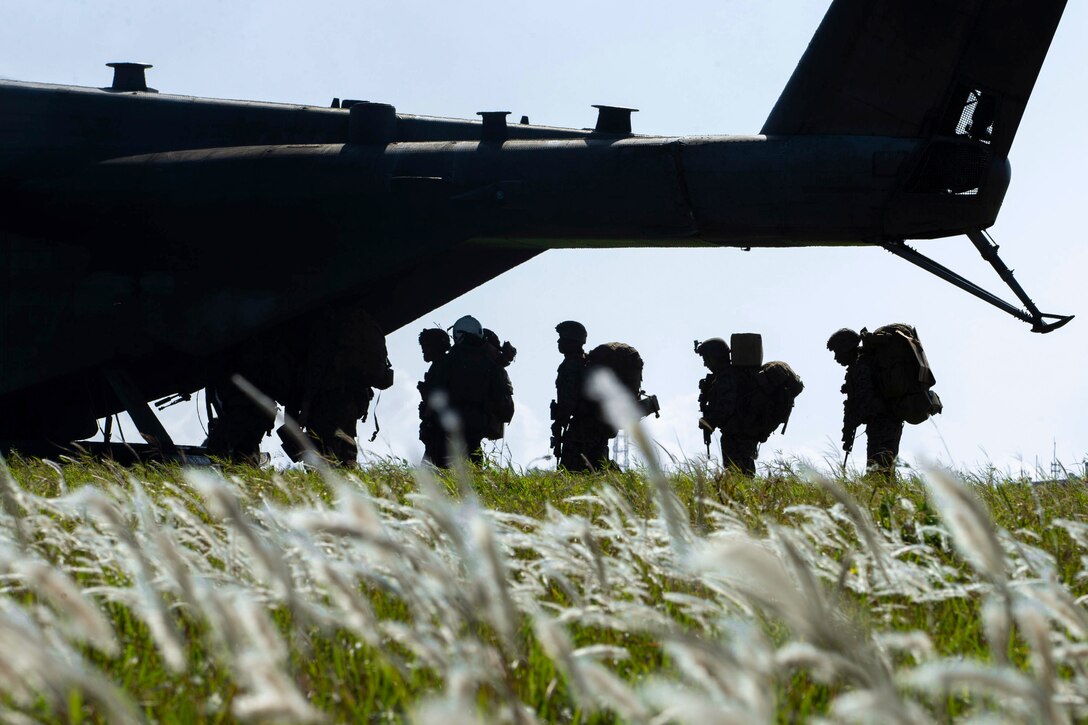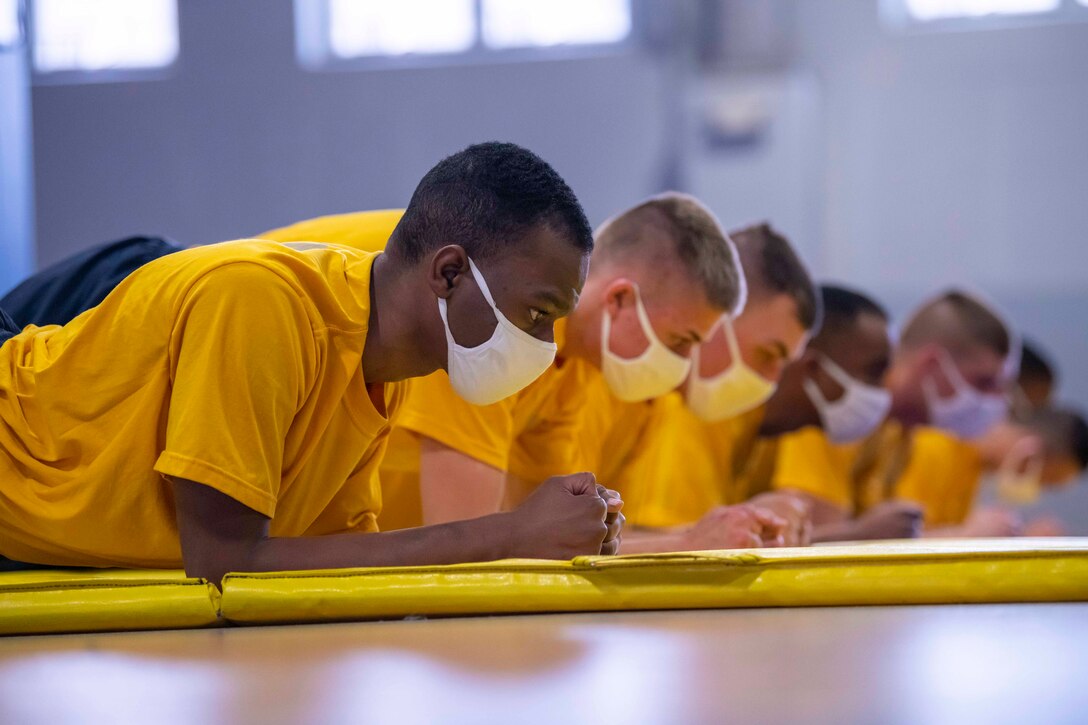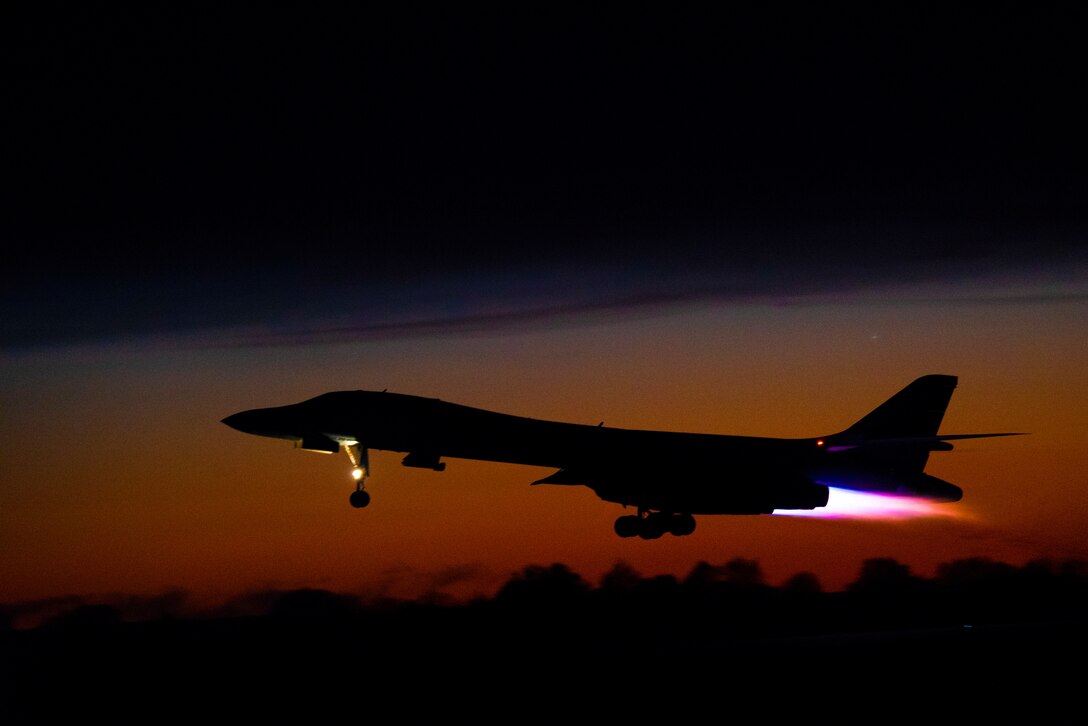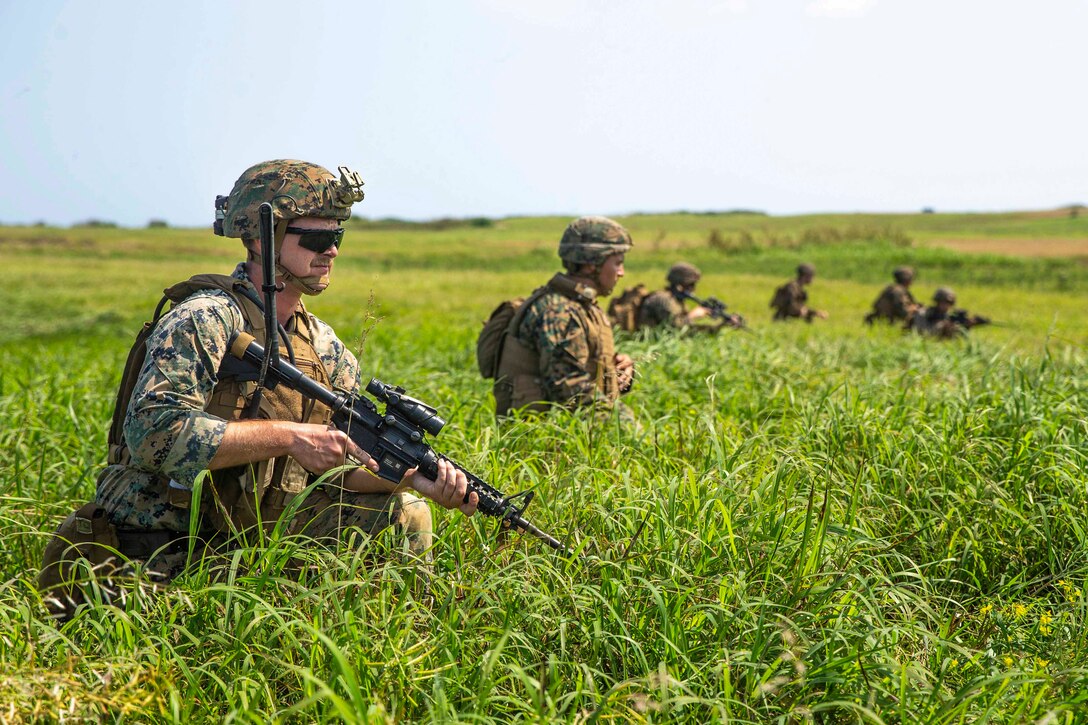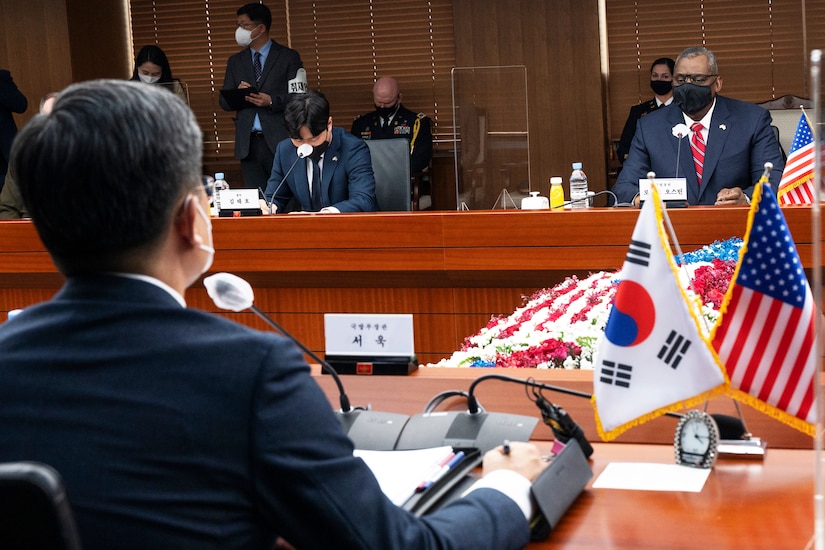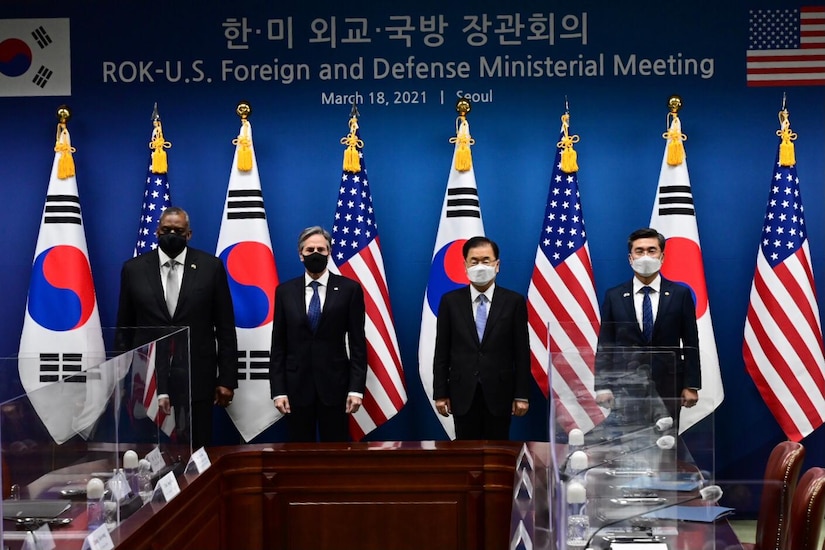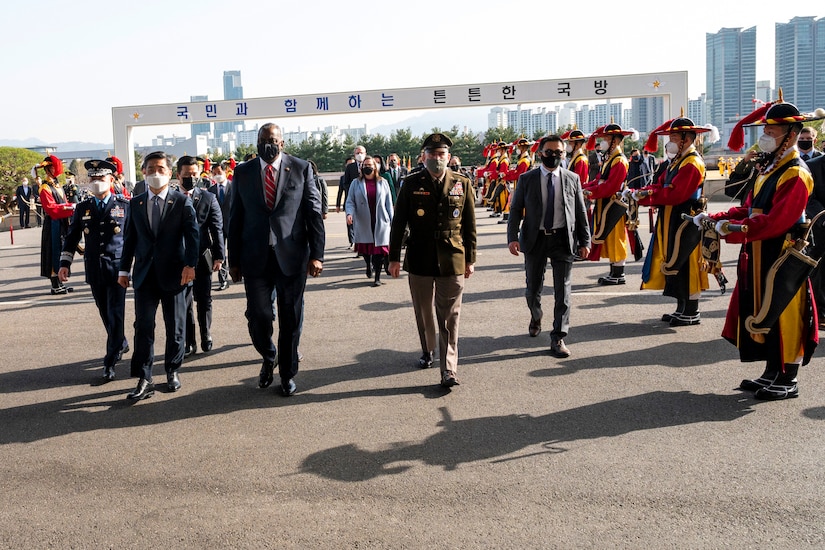MODERATOR (THROUGH TRANSLATOR): Ladies and gentlemen, foreign and defense ministers.
Good morning, ladies and gentlemen. We will now start the joint
press conference of the ROK-U.S. foreign and defense ministers. The
opening remarks will be made in the order of Minister Chung, Secretary
Blinken, Minister Suh, and Secretary Austin.
After the opening remarks of the four ministers and secretaries, we
will have a Q&A by two journalists from the Korean and the U.S.
side, respectively.
First, Minister Chung.
FOREIGN MINISTER CHUNG (THROUGH TRANSLATOR): Good morning,
everyone. It is my utmost pleasure to welcome and to stand with
Secretary Blinken, Secretary Austin, and Minister Suh.
First of all, regarding the gun shoot that happened in Atlanta,
Georgia last night, I would like to send our deepest heart to those who
are sacrificed. Among those sacrificed, we confirmed that there are
Korean Americans as well. It is our utmost interest to seek the safety
of those Koreans living in the U.S. Our heart also go to those who are
sacrificed as Americans. Also, in the starting of the meeting today,
both Secretary Blinken and Secretary Austin expressed their concerns and
also the disheartening of the incident. Thank you very much for
mentioning that.
And also, I'd like to welcome two secretaries once again for coming
to Korea in the early days of their appointment. It has been 11 years
since we had the both secretaries of the State and Defense from the U.S.
that happened in 2010. We confirmed once again today in this meeting
that both countries are the linchpins of the peace, security, and
prosperity on the Korean Peninsula, and the South -- in Northeast Asia
with the ROK-U.S. Alliance having the 70 years of history. Based on the
solid alliance, we made sure of the commitment to strengthen our
strategic communications. Also, we are expecting that this kind of
effort will be -- lead to the summit meeting between our two countries
in the coming future.
Also, we decided that reciprocal and the future-oriented cooperations
will be further expanded having the cooperation of the discussions on
the coming issues. The signing ceremony that happened right before --
regarding SMA -- has been reaffirming the solidity of the ROK-U.S.
Alliance, having resolved a long-term issue.
And also, both countries have confirmed our consensus on three major
areas. First of all, the North Korea nuclear issue is the most
immediate issue and it is necessary to have the close coordination
between our two countries.
Secondly, in order to resolve the North Korea nuclear issue in a
peaceful manner, the best diplomatic efforts will be made based on the
solid security base.
Lastly, in the process of review process of the North Korea by the
U.S., as well as the implementation period, fully coordinated strategy
will be the base for our coordination. Both countries will continue to
have the cooperation for the sake of the progress of the Korean peace
process. Also, for the regional peace, security, and prosperity, both
countries have decided to continue our cooperation, reciprocal, and the
futuristic manner among the three lateral countries, with Japan. Also
with the New Southern Policy and its cooperation, we decided to have the
common prosperity and stability, especially in the Indo-Pacific area.
Regarding climate change and COVID-19, we decided to have the joint
responses based on our alliance. We also decided to have that
cooperation of the 2+2 meeting. It will be very meaningful.
And also, we reaffirmed that when both countries are together, we can
have the strongest power, and also our greatest asset, which is the
U.S. alliance, can be sound and is reciprocal in the future and meet the
time of the demands.
MODERATOR (THROUGH TRANSLATOR): Thank you very much. Secretary Blinken, please.
SECRETARY BLINKEN: Well, good morning, everyone, and Mr. Minister
Eui-yong, thank you for hosting us. It's an honor to join you, to join
the defense minister, and of course, my friend and colleague Secretary
of Defense Austin, for today's 2+2 ministerial meeting.
Thank you also just for hosting me for two days in a row, and to the
people of the Republic of Korea for, as always, their incredibly warm
hospitality. And I want to reiterate again our outrage and grief over
the deaths of eight women in Atlanta yesterday, including, we hear, four
of Korean descent. We stand with the Korean community and everyone
united against violence and hate.
This trip, as has been noted, is the first by any member of President
Biden's cabinet overseas, and it's no accident that Secretary Austin
and I came here. The U.S.-Republic of Korea Alliance is, as we have
long said, the linchpin of peace, security, and prosperity in Northeast
Asia, the Indo-Pacific, and around the world. But we came here not only
to reaffirm that fact and to reaffirm our alliance, but to build on it,
and that is exactly what we've been doing.
We just witnessed, as the minister said, the initialing of an
agreement in principle on the text of the Special Measures Agreement.
And this is the result of very diligent efforts by both sides to arrive
at a fair and equitable agreement. It will strengthen our alliance. It
will strengthen our shared defense.
This effort and our trip to the region is part of the Biden-Harris
administration's commitment to reinvigorate and modernize our alliances
and partnerships around the world, which are critical and crucial to the
security and prosperity of the American people. That's the message
we've underscored earlier this week in our meetings with our
counterparts in Japan. That's the message you see reflected in the
joint statement that we signed and we'll release today.
Our renewed engagement will put us on firmer footing to address a
series of shared security challenges in the region and beyond, including
the threat posed by North Korea. President Biden plans to complete a
North Korea policy review in the weeks ahead in close coordination and
consultation with the Republic of Korea, with Japan, with other key
partners, including reviewing pressure options and potential for future
diplomacy.
But as we conveyed to the foreign minister and the defense minister,
the goals of this policy are clear: We are committed to the
denuclearization of North Korea, reducing the broader threat the DPRK
poses to the United States and our allies, and improving the lives of
all Koreans, including the people of North Korea who continue to suffer
widespread and systematic abuses at the hands of their repressive
government.
We also discussed China. We are clear-eyed about Beijing's
consistent failure to uphold its commitments and we spoke about how
Beijing's aggressive and authoritarian behavior are challenging the
stability, security, and prosperity of the Indo-Pacific region.
Beijing's actions make forging a common approach among our allies all
the more important at a time when we're seeing a rollback of democracy
and human rights around the world, including in Burma, where the
military is attempting to overturn the results of the democratic
election by brutally repressing peaceful protesters.
It is more important than ever that we stand together for the values,
for the interests that unite us. And we covered a range of challenges
that transcend borders, including cyber security, health security,
climate change. At the time this alliance was forged, many of these
threats were not even on the horizon, but they certainly are now, and
we're determined to work together, particularly through trilateral
cooperation among the United States, South Korea, and Japan to meet
them. While our diplomacy and security ties are ironclad, I think it's
also very clear that the U.S.-ROK relationship goes even deeper than
that. It's rooted in mutual trust, in shared values, deeply intertwined
economic interests, and, of course -- and maybe most important --
generations of family and community ties and having one another's back
in the most difficult times.
That's what we saw in the early days of the pandemic when the
Republic of Korea donated two million face masks to our country to help
us fill a critical shortfall. Five hundred thousand of those masks went
to our Department of Veterans Affairs, which means that some Americans
who 70 years earlier had fought side by side with Koreans found
themselves protected from a deadly virus thanks to the masks donated by
the Republic of Korea today. That is what an alliance looks like.
Thank you, and it's really wonderful to be with you.
MODERATOR (THROUGH TRANSLATOR): Thank you, Mr. Secretary. Minister Suh, please.
DEFENSE MINISTER SUH (THROUGH TRANSLATOR): Today, we have held the
ROK-U.S. foreign and defense ministers meeting in five years. It was a
great opportunity for us to reaffirm the rock-solid ROK-U.S. Alliance
that has been growing in the last seven decades based on trust and
commitment. We have appreciated the strong combined defense posture of
the alliance based on the Mutual Defense Treaty, and reaffirmed the U.S.
commitment to the defense of Korea and extended deterrence.
Despite the COVID-19 pandemic, we have successfully completed the
Combined Command post training in the first half of this year and
created the necessary conditions for OPCON transition in enhancement of
the preparedness of the alliance. The alliance has made coordinated
efforts to reach the conditions for a successful OPCON transition and
agreed to continue to cooperate for OPCON transition. The ministers
also agreed to closely communicate and cooperate to achieve common goals
of complete denuclearization of the Korean Peninsula and establishing
permanent peace.
We have also decided to continue the harmonious cooperation between
the New Southern Policy of Korea and the Indo-Pacific Strategy of the
U.S. for peace, stability, and prosperity in the Indo-Pacific. The two
ministers will continue to cooperate in a future oriented manner. Thank
you.
MODERATOR (THROUGH TRANSLATOR): Now, Secretary Austin, please.
SECRETARY AUSTIN: Well, Minister Suh, Minister Chung, Secretary Blinken, it is a privilege to be here in Seoul with all of you.
And first and foremost, as my colleagues have pointed out, I am also
saddened by the horrific attacks in Atlanta, Georgia yesterday, where we
believe several women of Korean descent were killed. Our deepest
sympathies go out to all those affected by this horrific crime and
specifically the families of those who were killed. And I share my
colleague's view that violence of this type or any other type has no
place in our society.
Now today's meeting is a testament to the importance of our
alliance. With the many challenges that we face, our bond, forged
through shared sacrifice, is more important now than ever. For 70
years, the U.S. commitment to the U.S.-ROK Alliance has remained -- as
Secretary Blinken described, has remained ironclad. It is founded on
our shared interests and values and is among the strongest bilateral,
interoperable, and dynamic alliances in the world. And it is critical
not only to the security of the Republic of Korea and the United States,
but also to the peace and stability of Northeast Asia and a free and
open Indo-Pacific region.
The United States remains fully committed to the defense of the
Republic of Korea, using the full range of U.S. capabilities, including
our extended deterrent. As the United States and the Republic of Korea
continue to maintain a robust combined defense posture, we also remain
committed to the denuclearization of the Korean Peninsula. There is no
daylight between us on this point.
And today, we discussed the way forward on a host of critical
strategic and operational issues. And at the top of my agenda was
ensuring a shared understanding of the importance of maintaining
military readiness. Our force remains ready to fight tonight and we
continue to make progress toward the eventual transition of wartime
operational control to an ROK-commanded future combined forces command.
While meeting all the conditions for this transition will take more
time, I am confident that this process will strengthen our alliance.
And so we have a lot to look forward to as, together, we address global
security -- the global security challenges and engage in long-term
strategic competition, mainly with China, which, as some of you know, is
our department's pacing challenge in the years ahead.
Today, we continue to work together to identify areas for
collaboration within our respective regional strategies, particularly
upholding a rules-based international order and building capacity for
partners in the region. I'm especially pleased with the initialing of
the Special Measures Agreement, which reflects our commitment to this
alliance and illustrate the Biden administration's promise to revitalize
our network of alliances and partnerships. And so that is why we
reaffirmed our commitment to the U.S.-ROK-Japan trilateral defense
cooperation, because we recognize the value of multilateralism. And we
value a forward-looking agenda to address both current and future shared
challenges.
Our work in today's foreign and defense ministerial meetings reflects
our firm belief that leading with diplomacy backed by a strong combined
defense posture and working closely with our allies and partners will
allow us to meet every challenge and outmatch every competitor. It is
why we place great value on the U.S.-ROK Alliance, which has remained
the linchpin of peace, security, and prosperity in the Indo-Pacific for
nearly three quarters of a century.
We face many challenges together and we've risen to the occasion each
time. And we are grateful to the call of the Republic of Korea, one of
our closest friends and most steadfast partners, and I'm confident that
our two countries will work to -- continue to work shoulder-to-shoulder
to meet all challenges and any competitor for the next 70 years and
beyond.
As I said to Minister Suh in our meeting yesterday, we will continue to go together in the future. Thank you.
MODERATOR (THROUGH TRANSLATOR): Thank you, Mr. Secretary. Next,
we're going to have Q&A. Due to time constraint, as previously
arranged, two journalists from the Korean and the U.S. sides will ask
questions respectively. First, the Korean side. We have Mr. Hong
Ju-hyeong from Segye Daily to ask a question.
QUESTION (THROUGH TRANSLATOR): Nice to meet you all. My name is Hong Ju-hyeong. I have two questions.
First of all, North Korea policy -- this question goes to Minister
Chung and Secretary Blinken: Do you believe that the U.S. needs to
respect the Singapore agreement? Recently, Choe Son-hui of North Korea
said that the difficult situations will continue unless U.S. stops its
hostile policy to North Korea.
The second question goes to global cooperation. Minister Chung, have
you been asked to join Quad in this series of meetings? Secretary
Blinken, do you believe Korea can contribute to the strengthening of
Quad? And what kind of active engagement are you planning toward the
ROK-U.S. Alliance?
FOREIGN MINISTER CHUNG (THROUGH TRANSLATOR): Let me answer the question first.
Regarding North Korea policy, now the Singapore agreement, from the
Korean Government's perspective, is a confirmation of fundamental
principles to resolve the UK -- resolve the U.S.-North Korea relations,
establishing peace on the Korean Peninsula, and denuclearization, though
it needs to be considered seriously. Recently, Kim Yo-jong made a
statement and Choe Son-hui made another statement today, and I am
closely monitoring the situation. It seems North Korea is reviewing its
policy toward the U.S., and it seems that North Korea is closely
monitoring the dialogue between ROK and U.S. regarding North Korea
policy. I believe it's their own way of sending messages to us and the
U.S. Today, we briefly discussed on this issue. Now we will continue
to closely coordinate on this issue with the U.S., and I support the
Biden administration's efforts to engage North Korea, and hope that the
talks will be resumed.
On the visit of the secretaries from the U.S., there was no direct
discussion about Korea joining Quad. However, we discussed how we can
harmonize and coordinate the New Southern Policy of South Korea and the
Indo-Pacific Strategy of the U.S. As I have stated several times, the
Korean Government's position is that if it conforms with the national
interest of Korea and transparency and inclusiveness is ensured, we can
join any regional cooperative body.
SECRETARY BLINKEN: Well, thank you very much for the question. I
think as you know, with regard to North Korea, we're engaged in a
comprehensive policy review, which we hope to complete in the weeks
ahead. But what's significant about that review is it's being done in
very close consultation with the Republic of Korea, with Japan, with
other allies.
We have a shared concern, a shared interest in having a strong,
effective, and coordinated policy and proceeding together in lockstep.
We're focused on reducing the threat to the United States, to our
allies, posed by North Korea's nuclear program, its missile programs,
and to improving the lives of people in North Korea, throughout the
region as well. And we will continue to consult very closely in the
weeks ahead as we complete the review.
With regard to the Quad, I would just say it's -- I think as you
know, it's an informal grouping of likeminded countries that have come
together to deepen cooperation on a whole host of issues. Many of these
issues we're also working very closely with the Republic of Korea. We
find that working through some of these sub-regional groupings,
including the trilateral, the work we do with Korea and Japan, is very
beneficial in addressing some of the challenges we face.
One of the -- one of the, I think, realities of the moment we're in
is that when you consider virtually all of the issues that are actually
affecting the lives of our people and of our citizens, whether it's
climate, whether it's the pandemic, whether it's emerging technologies
-- and I could go down the list -- not a single one can be effectively
addressed by any one country acting alone. We have to find ways to
deepen cooperation, to deepen coordination with likeminded countries.
That's exactly what we've been doing with our close allies and partners
here. It's what we do in our trilateral cooperation as well with
Japan. It's what we do through the Quad. It's what we do through
ASEAN.
That is, I think, the imperative of the moment we're in. And we're
very, very pleased that we've been able to do the work we've done here
today because it's evidence of our determination to revitalize, to
strengthen our alliances, to build on them, because that is the single
best way to tackle the problems that actually affect the lives of our
citizens.
MODERATOR (THROUGH TRANSLATOR): Thank you very much. Now, moving on
to -- would like to receive the questions from the U.S. press.
MR PRICE: The next question will go to Christina Ruffini of CBS.
QUESTION: Good afternoon, gentlemen. Mr. Secretary, North Korea has
so far not responded to U.S. attempts to engage, and as was just
mentioned, today the vice minister of foreign affairs called such
efforts a cheap trick and said U.S. calls for complete denuclearization
were groundless rhetoric. When it comes to this policy review that you
mentioned, given how far the two sides are apart, is the U.S.
considering a policy of containment rather than engagement with North
Korea? And will you be asking the Chinese to take any specific actions
regarding Pyongyang when you meet in Alaska?
And Mr. Foreign Minister, if I may, you said it appears North Korea
is reevaluating its relationship with the U.S. Do you feel North Korea
is more or less dangerous after the efforts of the previous
administration, and have you asked Secretary Blinken to convey any
message or request from your government to the Chinese? Thank you.
SECRETARY BLINKEN: Thank you very much. Look, the -- with regard to
North Korea, the most important outreach and engagement we're doing is
with our partners and allies. That's a big part of the reason why we're
here. It's a big part of the reason why, as part of the review that
we're doing, we're in close consultation with the Republic of Korea,
with Japan, with other allies and partners who are concerned by the
actions and activities of North Korea. And I don't want to get ahead of
the review and pre-judge its conclusion. We'll have an opportunity, I
know, to talk about that going forward.
China has a critical role to play in working to convince North Korea
to pursue denuclearization. China has a unique relationship with North
Korea. Virtually all of North Korea's economic relationships, its trade
go -- are with or go through China, so it has tremendous influence.
And I think it has a shared interest in making sure that we do something
about North Korea's nuclear program and about the increasingly
dangerous ballistic missile program.
So I would hope that whatever happens going forward, China will use
that influence effectively to work on moving North Korea to
denuclearization.
FOREIGN MINISTER CHUNG (THROUGH TRANSLATOR): Since 2018 on the
Korean Peninsula, the peace building, indeed reconciliation of these
tensions have been fruitful, in my opinion, especially in September
2018. The Comprehensive Military Agreement between the two Koreas was a
great achievement and meaningful, and that agreement is still the basis
for both Koreas to be abiding by. So that should -- worthy of notice.
For the last three years, the ROK and the U.S. have been maintaining
close coordination, and based off of that, we have maintained our
engagement policy with North Korea. And we believe that there is a
possibility for us to have the denuclearization, and that has been
proven in principle.
Through the 2+2 meeting today, both the ROK and the U.S. demonstrated
that we have the fully coordinated strategies and plans, and we decided
to have further plans in the future. Based off of that, we can have
the full and effective engagement with North Korea. Having said that,
we believe that it's possible for us to have the full peace building in
the Korean Peninsula.
MODERATOR (THROUGH TRANSLATOR): Thank you, Mr. Secretary, Mr. Minister Chung.
Now the Korean side. Mr. Lee Seung-yun from YTN.
QUESTION (THROUGH TRANSLATOR): Good morning. I have two questions
for Minister Suh. First, the U.S. is strengthening cooperation with
Quad member-states. Was there any request from the U.S. for a combined
military exercise with Quad members or intelligence sharing with the
Quad members? Second, now the U.S. DOD is reviewing the USFK deployment
posture. Did you have any discussion on that?
(In English.) This question goes to Defense Secretary Austin. Welcome to South Korea.
In order to strengthen national defense, the Korean Government wishes
to build nuclear-powered submarine and a light aircraft carrier. Do
you think that they will be feasible and essential assets for Korea-U.S.
combined forces? And is the U.S. willing to help Korean Government to
build nuclear-powered submarine?
Second, although you emphasized the challenges posed by North Korea
and China yesterday, China is still necessary to solve out the North
Korean nuclear issues. So how would you cope with this dilemma? Maybe
Secretary Blinken can answer for these questions, too. Thank you very
much.
DEFENSE MINISTER SUH (THROUGH TRANSLATOR): Let me answer the
question first. So the question about intelligence sharing or combined
military exercise with Quad member-states, there is no such request from
the U.S. We discussed measures to ensure stability in the Indo-Pacific
and shared the understanding of the two sides, however there was no
specific mentioning or a request on those issues you just raised.
Regarding the military cooperation with the U.S., the U.S. discussed
emerging security threats in our responses and stressed the necessary
cooperation with the U.S., Japan, and Korea. Basically, Korea agrees
that the trilateral cooperation is important. With the occasions of
bilateral meetings and multilateral meetings, we will continue to
cooperate with the U.S. in terms of military cooperation. And I believe
Secretary Austin is better positioned to answer this part of the
question.
Now, the U.S. DOD is reviewing the USFK redeployment or
repositioning. And we didn't discuss this issue specifically in this
meeting. However, basically, the U.S. reaffirmed the importance of USFK
in ensuring stability and peace in Northeast Asia, and U.S. commitment
to the defense of Korea is steadfast.
SECRETARY AUSTIN: Yeah, so thanks. On the issue of nuclear
submarines or any other capability that the Republic of Korea might seek
to acquire, I think it's best that the leadership of the republic speak
to that versus me. And so I'll leave it to Minister Suh to entertain
those questions in the future.
You should know, though, that we're focused on ensuring that we have
the required capability to defend the alliance and to defend the ROK if
and when called upon to do that. And our efforts to continue to work
together routinely to strengthen our capability I think is evident in
kind of everything we do. It's all -- it's what we really spent a lot
of time talking about in the last two days.
So we have tremendous capability at hand. We're going to increase
that capability by ensuring that we can continue to operate as a
combined team.
SECRETARY BLINKEN: And I want to first commend you on demonstrating
the art of the multi-party, multi-part question. (Laughter.)
And again, with regard to Beijing, Beijing has an interest, a clear
self-interest, in helping to pursue the denuclearization of the DPRK,
because it is a source of instability, it's a source of danger, and
obviously a threat to us and our partners. But China has a real
interest in helping to deal with this.
It also has an obligation under the UN Security Council resolutions
to implement fully the sanctions that the international community has
agreed are there in response to North Korea's program and to its
provocations. So we look to Beijing to play a role in advancing what is
in, I think, everyone's interest.
MODERATOR (THROUGH TRANSLATOR): Thank you very much. Now the last question, back to the U.S. press.
MR PRICE: The final question will to go Lara Seligman of Politico.
QUESTION: Good afternoon, gentlemen.
Secretary Austin, you spoke about the importance of maintaining
military readiness. For the past three years, the joint military drills
between South Korea and the United States have been downsized due to
ongoing negotiations over North Korea's nuclear arsenal. What impact
has that had on readiness? And do you plan to continue the
smaller-scale exercises in future, or will they return to their former
size and scope?
Secretary Blinken, if I may: As has been mentioned, North Korea's
vice minister of foreign affairs said today that there would be no
dialogue until the United States drops what she called its "hostile
policy." Can I get you to respond directly to that? And by insisting
from the start that the end state is its complete denuclearization,
aren't you closing the door to talks and setting the stage for four
years of stalemate?
And finally, if I may, for Minister Chung: The U.S. delegation has
repeatedly called for the denuclearization of North Korea --
specifically North Korea, not the Korean Peninsula. So does the
Government of South Korea back this call rather than the Korean
Peninsula? Or can I have you just to respond to that, please?
SECRETARY AUSTIN: Well, thanks, Lara. I'll start, and the question
was training and readiness. And as you would expect, for me and for
everyone that works with me and for me, readiness remains a top
priority. And I know that that is a top priority for our teammates here
in the republic as well. And so we're always looking for ways to make
training better, and I think not only here but around the globe we've
learned to be flexible, we've learned to be adaptive, and we have
always, always been effective.
In terms of whether or not -- what the training regimen will be going
forward, that will be a joint decision between us and the ROK, and
we'll continue to work with the leadership here in the ROK to address
those issues.
SECRETARY BLINKEN: And Lara, with regard to the comments from North
Korea, I'm aware of them. But what I'm most interested in right now are
the comments and thoughts of our allies and partners, which is why
we're here, as we complete our review. So that's what we're focused on.
FOREIGN MINISTER CHUNG (THROUGH TRANSLATOR): Yes. Regarding the
denuclearization of the Korean Peninsula was the result of the agreement
of the denuclearization of the -- both Koreas. And also because of
that we have the manufacturing and positioning and seven very concrete
measures of denuclearization measures that have been under that
agreement. And also, that means that we are quite having the very sure
definition of the denuclearization in the Korean Peninsula, and also the
nuclear weapons will not be owned by -- as according to our
declaration. And that was the declaration we made.
When we talk about the denuclearization of the Korean Peninsula, it
means that to the North Korea we are showing that South Korea has been
already denuclearized. And also, according to the agreement made in
1995, we are suggesting North Korea that we have to go along together,
and the North Korea is fully aware of that as well.
And the international community, rather than talking about the
denuclearization of the North Korea, if we can say the denuclearization
of the Korean Peninsula, we are very much more confident that we can
convince the North Korea to follow our suit. So I believe that it is
more correct to say that it is about the denuclearization of the Korean
Peninsula.
MODERATOR (THROUGH TRANSLATOR): Thank you very much.
Now this concludes the joint press conference of the ROK-U.S. foreign and defense ministers meeting. Thank you very much.
